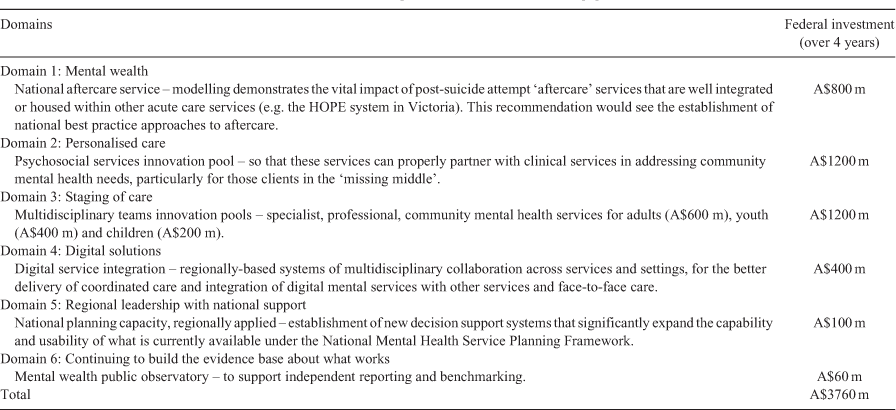Combatting Commission fatigue: what does real reform in mental health look like?
Sebastian RosenbergCentre for Mental Health Research, Australian National University, Building 63, Acton, ACT 2601, Australia.
Brain and Mind Centre, The University of Sydney, 94 Mallett Street, Camperdown, NSW 2050, Australia.
Australian Health Review 44(6) 816-817 https://doi.org/10.1071/AHv44n6_ED2
Published: 2 December 2020
The Royal Commission into Aged Care Quality and Safety is just one of several current investigations revealing problems and issues in mental health. Following on from the terrible Oakden scandal in South Australia, the Commission’s interim report found significant over-prescribing of psychotropic medication and over-reliance on chemical restraint in aged care homes.1 This comes on top of new data showing that the rate of suicide increased in 2019 (pre-COVID), that suicide was the leading cause of death among people aged 15 to 49 years and that intentional harm is by far the largest contributor to years of potential life lost in Australia (115 221 years).2
While shocking, we should not be shocked. These are but the latest in a long series of statutory or parliamentary inquiries demonstrating Australia’s abject failure to build a mental health system on which the community can rely. It is easy to become jaded by the deluge of evidence because not much changes. So far, even a pandemic has failed to elicit systemic reform of mental health care, leaving a situation in which, if your problem is too complicated for your psychologist, there are few service alternatives other than the Emergency Department of your local public hospital.
Budget 2020 made much of the so-called ‘doubling’ of rebatable Medicare psychology sessions under the Better Access Program, which Minister Hunt claimed was done in accordance with a recommendation made by the Productivity Commission, ignoring that the Commission also called this program unaccountable, maldistributed, of dubious quality and in dire need of evaluation.3
But whether one is discussing aged care, youth mental health, suicide prevention or other key elements of mental health care, what is fundamentally missing is strategy.
Rather than just carping, over the past year or so we convened a group of stakeholders comprising consumers, carers, professionals, funders, researchers, and others, to decide what to do.4
Six key domains for strategic reform were identified, with just one key, costed action to be taken in each. These are shown in Table 1 and constitute a reasonable place to begin the overdue process towards a more joined up and strategic response to mental illness across Australia, and to deal with the additional pressures placed on our broken system by the pandemic.

|
The Productivity Commission Report has now been launched and the Federal Government has given itself 1 year to develop its response. At stake is Australia’s mental wealth.5 It is critical we begin to shift our response from the piecemeal and kneejerk to sustained investment in identified areas of strategic and systemic reform.
Competing interests
The author declares no competing interests.
References
[1] Royal Commission into Aged Care Quality and Safety. Interim report. 2019. Available at: https://agedcare.royalcommission.gov.au/publications/interim-report [verified 26 October 2020].[2] Australian Bureau of Statistics. Causes of death, Australia: statistics on the number of deaths, by sex, selected age groups, and cause of death classified to the International Classification of Diseases (ICD). 2020. Available at: https://www.abs.gov.au/statistics/health/causes-death/causes-death-australia/latest-release [verified 26 October 2020].
[3] Productivity Commission. Mental health: report. 2019. Available at: https://www.pc.gov.au/inquiries/completed/mental-health#report [verified 26 October 2020].
[4] University of Sydney, Brain and Mind Centre and Australian National University. Mental health funding priorities: responding to COVID-19 and building longer-term reform. 2020. Available at: https://www.sydney.edu.au/content/dam/corporate/documents/brain-and-mind-centre/mental-health-priorities-15-september-2020.pdf [verified 20 October 2020].
[5] Atkinson JA. The impact of COVID-19 on the mental wealth of Australia. The University of Sydney News, 2 September 2020. Available at: https://www.sydney.edu.au/news-opinion/news/2020/09/02/the-impact-of-covid19-on-the-mental-wealth-of-australia.html [verified 20 October 2020].


